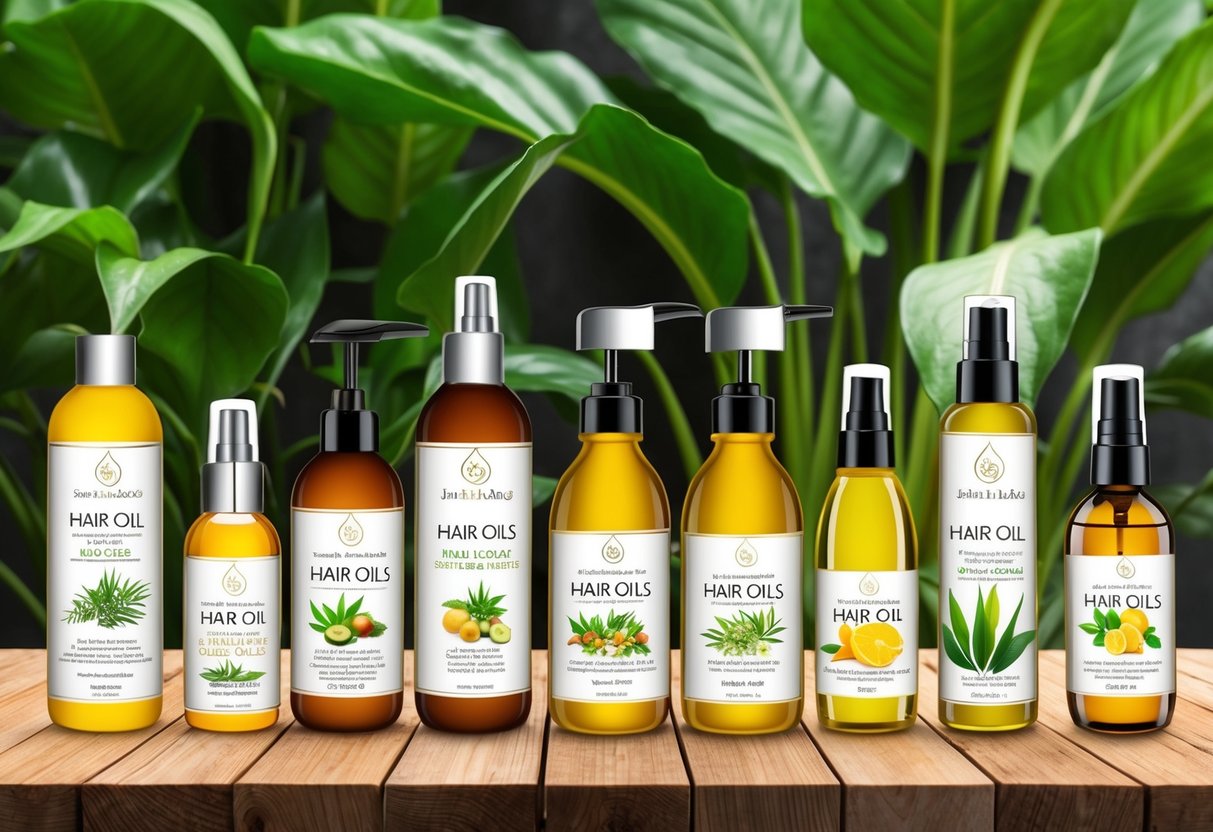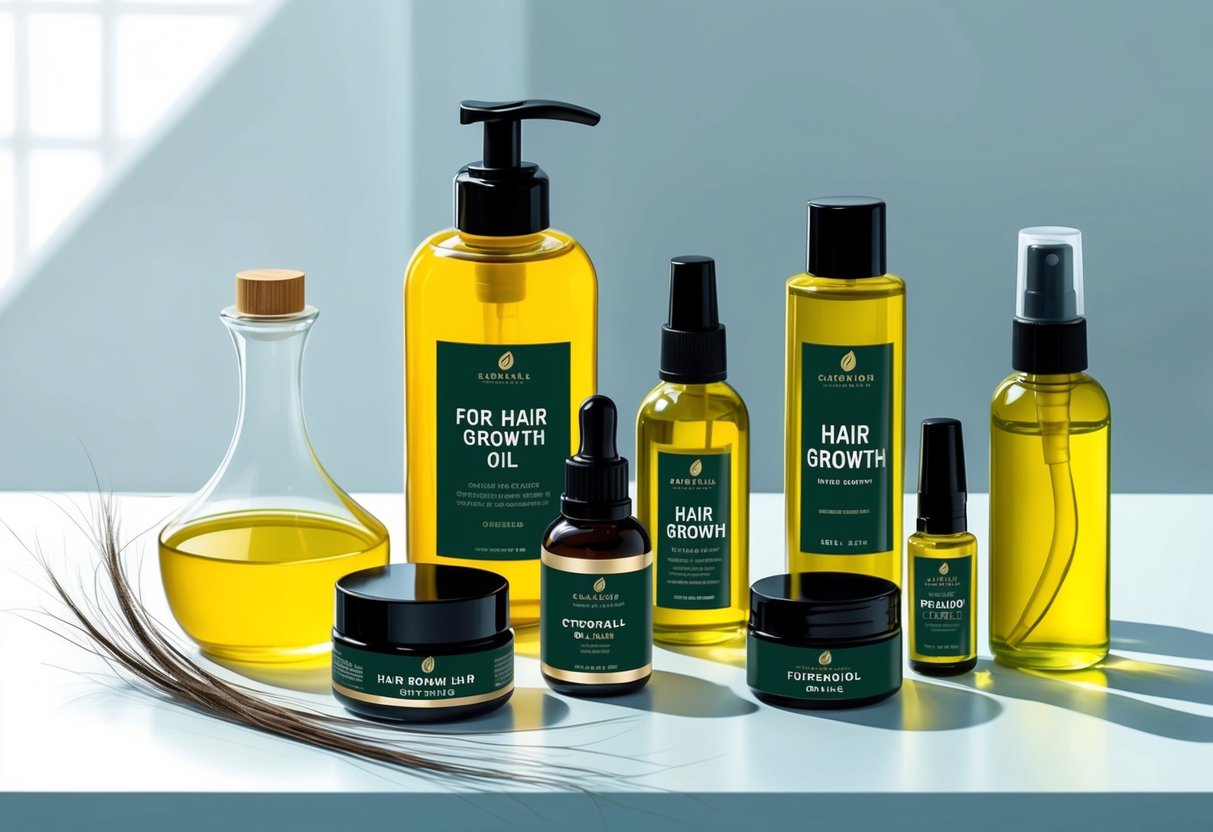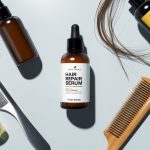Best Hair Growth Oils for Thicker, Healthier Hair: Top Picks and How to Use Them
Extra Benefits of Hair Oils for Overall Hair Health

Hair oils do more than promote hair growth—they help strengthen strands, protect against daily damage, and support a thriving scalp environment. Regular use builds resilience and gives hair a smoother, healthier appearance even with frequent styling.
Heat Protection and Damage Reduction
Many hair oils, such as argan, coconut, and avocado oil, offer a natural barrier against damage from heat styling tools. These oils coat the hair shaft, reducing moisture loss and helping fend off breakage and split ends.
The result is less frizz and greater manageability even when using curling irons or straighteners. A number of popular oils are rich in antioxidants and essential fatty acids.
This composition shields hair from oxidative stress caused by heat and environmental factors. Using hair oils as a heat protectant before blow-drying or ironing helps hair maintain elasticity and shine.
Some oils also add a protective layer that smooths the hair cuticle. This not only reduces immediate damage but also lessens long-term brittleness.
For those who often style with heat, selecting oils specifically known for these protective qualities is a simple way to keep strands looking fuller and healthier. Standard instructions involve applying a small amount of oil to damp or dry hair just before heat exposure for optimal results—see more details.
Long-Term Scalp and Hair Maintenance
Consistent use of hair oils contributes to a healthier scalp by delivering nutrients such as minerals, vitamins, and fatty acids directly to the roots. Oils like castor and argan are particularly valued for their ability to nourish follicles and soothe irritation, supporting an ideal environment for new growth.
Improved scalp health also results from the antimicrobial and anti-inflammatory properties found in certain oils. These qualities help address flakiness or minor scalp conditions while keeping the skin balanced and less prone to excess dryness or oiliness.
Massage can enhance absorption, encouraging blood circulation for healthier roots. Over time, hair oils help maintain hydration, soften hair texture, and improve overall manageability.
The routine use of these oils leads to stronger, more elastic hair less prone to thinning and breakage. This supports thicker, vibrant strands through better scalp health and long-term nourishment.
Frequently Asked Questions

Many hair oils contain active botanical ingredients that have been studied for their benefits in supporting thicker, healthier hair. Factors like the specific oil, frequency of use, and a person’s hair type all influence results.
What are the top hair oil ingredients for promoting thicker hair?
Key ingredients in the best hair growth oils include rosemary, peppermint, tea tree, castor, coconut, jojoba, and argan oils. These natural oils are widely used due to their potential to nourish hair follicles and improve scalp health.
Argan oil and castor oil are particularly highlighted for their ability to support thicker, stronger strands.
How can I use hair growth oils effectively for the best results?
To maximize the benefits, users should apply hair growth oil directly to the scalp and massage it in to stimulate circulation. Leaving oil on for several hours or overnight can improve absorption.
Regular use, combined with gentle massage, is shown to enhance hair thickness over time. For detailed methods and product ideas, review the guide on best practices for using hair oils.
What do dermatologists recommend as the most effective oil for hair regrowth?
Dermatologists often point to rosemary oil as an effective option due to its ability to increase circulation to the scalp and encourage new hair growth. Peppermint oil and tea tree oil are also mentioned for their benefits in supporting scalp health and reducing inflammation.
Consistent application is key to seeing results.
Which natural oils are scientifically proven to enhance hair growth and density?
Studies suggest that rosemary oil, castor oil, and peppermint oil may have a positive effect on hair density and regrowth. Rosemary oil, in particular, has been compared favorably to minoxidil in some research.
Castor oil contains ricinoleic acid, which is believed to promote circulation at the hair root.
Are there any specific hair oils that show promising results for thinning hair at the crown?
Products containing rosemary oil, castor oil, and certain blends rich in fatty acids have been recommended for thinning areas, especially at the crown. These oils can support a healthier scalp environment and potentially stimulate dormant follicles.
Users often report visible improvements with consistent use, as noted in several tested hair growth oils.
How often should I apply hair growth oils for optimal hair health and thickness?
For best results, most experts suggest applying hair growth oils two to three times per week.
Some individuals may choose to use lighter oils more frequently depending on hair type and scalp condition. Overuse can sometimes lead to buildup, so it’s important to adjust application based on individual needs.



